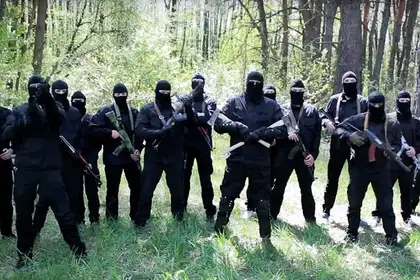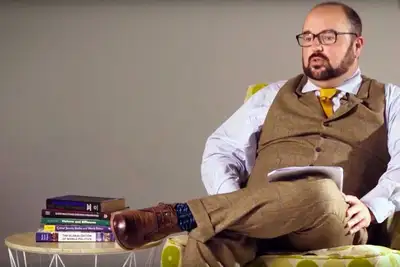
Massey defence experts argue that fixing economic disparities is as important as combating terrorism in achieving global security.
Security in the 21st century will be determined as much by tackling income inequality and diminishing natural resources as countering terrorism, according to specialists in a Massey University video series on security.
Professor Rouben Azizian, director of the Centre for Defence and Security Studies, says that security is “about more than just guns and spies, it’s also about food, environment, economy, migration issues – it’s much broader, and I think in general we all accept that. But when it comes to practice, we’re somehow sticking to the same old processes and methods. This is not how security needs to be handled in the 21st century. ”
Dr Wil Hoverd – also from the centre, which has produced the four-part series of short videos titled Big Issues in Security – says income inequality has created a tipping point in New Zealand and globally as individuals and nations work out next steps in shaping an economically secure future.
It is vital that new research on security issues considers economic inequality and competition over scarce resources as “key drivers of insecurity,” he says. Western nations such as New Zealand have, successfully followed a free trade agenda to grow and prosper. “But as growth slows, resources become scarce and poverty grows. Global income inequality becomes a key driver of global insecurity.”
Dr Hoverd cites Brexit and the election of Donald Trump as US president as indicators of citizens’ increasing sense of powerlessness about issues affecting their security.
Climate change to human trafficking
In the first of the series offering broader, newer ways of thinking about security and defence, Professor Azizian says security means different things to different people, from being physically safe to “being free to be able to say things without being prosecuted or punished”.
In this century, security also encompasses having a healthy environment and keeping our oceans clean. “For some countries, climate change is their number one security problem. If climate change is not tackled some of them will go underwater. We will lose some nation states.”
Other challenges in global security include human trafficking, biosecurity and food security as well as geopolitical tensions. The rise of China in the Asia-Pacific region, for example, raises questions about whether China’s presence in the region will aid or destabilise security, he says.
Security is more complex in a connected, globalised and inter-dependent world, and goes beyond an individual’s sense of security, he adds, to include “seeing and watching how others feel secure, or suffer under insecurity”.
Through exposure to 24/7 media coverage we are constantly aware of, even if not directly affected by, world events. “We’re all human, we care about each – there are certain values we follow,” says Professor Azizian.

Dr Wil Hoverd.
Government, academics and public need to connect on security issues
Dr Hoverd says that while conventional warfare has declined in last 30 years, it has been replaced by trans-national threats such as cyber attacks, human trafficking, irregular warfare, illegal fishing, environmental disasters and mass migration.
There has never been a more urgent time for academics to collaborate with government, non-governmental agencies and the public in comprehensive research on diverse security-related issues, he says.
The last two videos in the series will be released next month, and will focus on the workings of the International Criminal Justice system, and on ethical issues in defence.
Professor Azizian says the aim of the videos is to stimulate the general public to think about issues of security, because he believes the current international security environment transcends traditional narrow thinking and requires a whole of society approach and participation. Civil society, business and the media should all be part of the discussion.
The Centre for Defence and Security Studies has also launched Cyber Security and Policy: a substantive dialogue, published by Massey University Press, and edited by Dr Andrew Colarik, from the Centre for Defence and Security Studies; Associate Professor Dr Julian Jang-Jaccard, from the College of Science’s technology cluster; and Dr Anuradha Mathrani, from the Information Technology in the Institute of Natural and Mathematical Sciences.
The book explores how a world without the advantages and convenience provided by cyberspace and the internet is now unimaginable, and whether “we truly grasp the threats to this massive, interconnected system? And do we really understand how to secure it?”
For further reading, go to Professor Azizian’s article published in the latest Line of Defence magazine: A comprehensive approach to national security and a more assertive New Zealand in regional security?
View Professor Rouben Azizian’s video: What is Security? View Dr Wil Hoverd’s video: Global Inequality